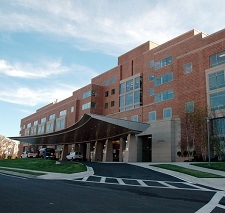 A new American Heart Association (AHA) scientific statement provides guidance on staffing, leadership and resource requirements for hospital stroke centres, with the intention of reducing variability and improving quality of care at stroke centres across the USA.
A new American Heart Association (AHA) scientific statement provides guidance on staffing, leadership and resource requirements for hospital stroke centres, with the intention of reducing variability and improving quality of care at stroke centres across the USA.
The statement has been published today in the AHA’s peer-reviewed journal, Stroke, and will be presented during a session on ‘cerebrovascular nursing’ at the 2023 International Stroke Conference (ISC; 8–10 February, Dallas, USA).
US stroke centres are certified by several different agencies at four levels: acute stroke-ready hospitals, primary stroke centres, thrombectomy-capable stroke centres and comprehensive stroke centres. Since certification began in the USA in 2003, there have been considerable advancements in diagnostic, prevention and treatment strategies that have increased demand for stroke centre recognition via certification, as per an AHA press release.
While certification requirements and some state agencies provide general standards, and designate scope of practice dependent on the level of stroke services, there is a lack of detail regarding important structural components for stroke centres, according to the AHA, and differences in these areas mean that stroke centres credentialed at the same level may function very differently.
The statement should be viewed as a “call to action” that proposes ideal foundational requirements for stroke centres that may help minimise inconsistencies and improve the services provided by certified stroke centres at all levels, the AHA also states.
These include suggestions for stroke programme leadership, personnel resources, neuroimaging capabilities, procedural capabilities, hospital bed resources, quality improvement and clinical research, and stroke system accountability.
Guidance is based on the level of certification. For example, while performance improvement plans are suggested for all four levels of stroke centres, clinical stroke research is recommended as a foundational requirement only for thrombectomy-capable and comprehensive centres. Also, a dedicated stroke unit is required for all but the acute stroke-ready level of certification, and a neurocritical care unit is required for a comprehensive stroke centre, the release further notes.












